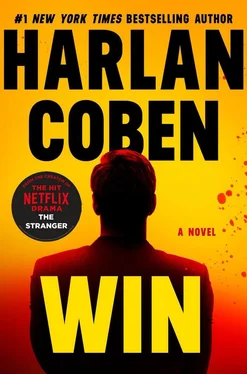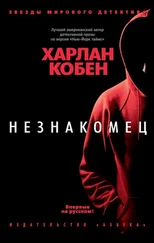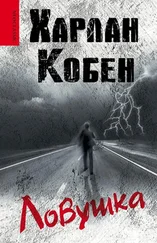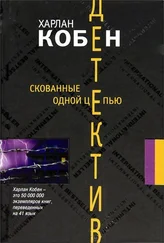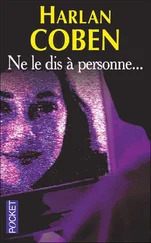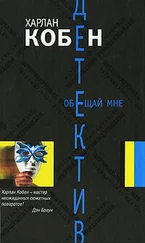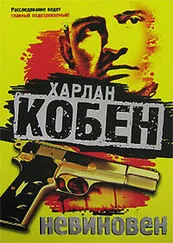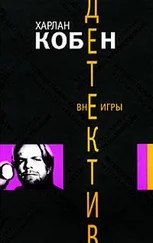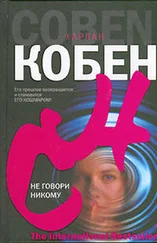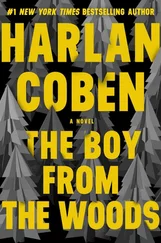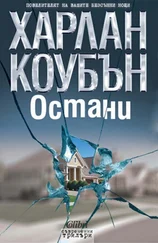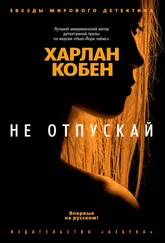The old woman speaking to me now is Vanessa Hogan.
I am back at her house in Kings Point. We are alone. Jessica set this up for me. At first, Vanessa Hogan was reluctant to consent to a second meeting. The enticement that pushed her over the edge, as I suspected it would, was that she and I would meet alone, only the two of us, and I would tell her the whereabouts of Arlo Sugarman.
“Could we start with you?” I ask her.
Vanessa Hogan is propped up via pillows on the same couch. Her skin tone is rosier than at our last meeting. She appears less frail. A scarf still covers her head. The house is empty. She’d sent her son Stuart to the grocery store.
“I really don’t know what you mean.”
“I recently visited Billy Rowan’s father,” I say. “Do you know he and Edie Parker’s mother are something of an item?”
“I did not,” Vanessa says, her voice dripping something overly sticky. “How nice for them.”
“Yes. William Rowan is in assisted living. His room is filled with Christian imagery. There are framed Bible quotes on the wall. I found the contrast striking.”
“What contrast?”
“With your home,” I say, lifting both hands in the air. “I don’t even see a single cross.”
She shrugs. “That’s show religion,” Vanessa replies with a tinge of bitterness. “That doesn’t mean anything.”
“Alone, you’re correct, it wouldn’t. But I have done some digging. You’ve never been associated with a church, as far as I can see. You’ve never given money to any religious institution. In fact, before Frederick was killed—”
“Murdered,” Vanessa Hogan interrupts, a sticky-sweet smile plastered to her face. “My son wasn’t killed. He was murdered.”
I try to mirror the smile. “We are getting to it now, Ms. Hogan, aren’t we?”
“What does that mean?”
“My best friend was robbed of a pro basketball career because a man named Burt Wesson intentionally injured him. Destroyed his knee. One day, I paid Burt a visit. He hasn’t been the same since. There are men who have crossed my path who have done great wrongs. Over the years, I’ve conducted ‘night tours.’ Some survived, some didn’t, but none were ever the same. Most recently, right before Ry Strauss’s body was found, I made sure a bullying abuser would never harm anyone else again.”
Vanessa Hogan studies my face. “Do you have your phone with you, Mr. Lockwood?”
“I do.”
“Take it out and hand it to me.”
I do as she asks. She looks at the screen.
“Do you mind if I power it off?”
I signal for her to suit herself.
Vanessa Hogan presses the button on the side and holds it. The phone goes dark. She leaves it on the coffee table. “What are you trying to say, Mr. Lockwood?”
“You know,” I say. “We both felt it that first meeting. All of our talk about vengeance.”
“I told you that vengeance should be the Lord’s.”
“But you didn’t mean it. You were testing me, gauging my reaction. I could see it in your face. The bullying abuser I injured last week? He was an active danger. Now he isn’t. Simple. He was neutralized by me because the law wouldn’t stop him.”
She nods. “You said you wanted to do the same to the men who killed your uncle.”
“Yes.”
“And killed the poor girls.”
I nod. “You understood,” I say. “You sympathized.”
“Of course.”
“Because you’ve done the same.”
I lean back. I put a hand into my pocket.
“Where is Arlo Sugarman?” she asks.
“I could just turn him in,” I say.
“You could, yes.”
“But you’d rather I not.”
The room falls silent. We are right on that edge now.
I say, “You know what happened to Lionel Underwood, don’t you?”
She doesn’t reply.
“It was too much for Leo Staunch. He didn’t want anyone else to endure what Lionel Underwood had. So he asked me to help him protect Arlo Sugarman. I found that odd.”
“As do I,” she says.
“No, not that he didn’t want to hurt Arlo — I got that.” I lean closer and lower my voice. “But why did Leo only ask about Arlo?”
“I’m not following.”
“Why,” I continue, “didn’t he ask me about Billy Rowan and Edie Parker?” I sit back. “It kept nagging at me, but the answer was obvious.”
“What’s that?”
“Leo Staunch didn’t ask about Billy and Edie,” I say, “because he knew they were already dead.”
Silence again fills the room, pushes out, suffocates.
“It is funny how so many of the early theories ended up being the correct ones,” I say. “Take the Jane Street Six. After Lake Davies turned herself in, there were only five. How, everyone wondered, could the remaining members have managed to stay hidden all these years? One person? Okay. Two? Unlikely, but perhaps. But all five of them alive and unseen for all these years? Now we know the answer, don’t we? Lionel Underwood has been dead for more than forty years. Nero Staunch took care of that. And Billy and Edie have been dead even longer. You saw to that, Ms. Hogan.”
Vanessa doesn’t reply. She just sits there with the sickly-sweet smile.
“You are eighty-three years old,” I say. “You are ill. You want to tell someone the truth, and you see me as a kindred spirit. You have my phone — I would have no proof anyway. Do you fear I will report what you say to the FBI?”
Vanessa Hogan’s eyes lock hard on mine. “I don’t fear anything, Mr. Lockwood.”
Of this I have no doubt.
“They stole my life.” Her voice is a pained and harsh whisper. She takes in a deep breath. I watch her chest rise and fall, taking in oxygen, gaining strength. “My only son, my Frederick... When I first heard he was dead, it felt like somebody had whacked me with a baseball bat. I dropped to the floor. I couldn’t breathe. I couldn’t move. My life ended. Just like that. All that love I had for that boy, the precious beautiful boy, it didn’t die. It turned to rage. Right there.” She shakes her head, her eyes dry. “Without that rage, I don’t think I would have ever stood up.”
There is a water bottle next to her with a straw. She lifts it to her lips, and her eyes close.
“I became consumed with justice. You, Mr. Lockwood, you worry about stopping bad people before they commit more crimes. What you do is admirable and even practical — you stop crimes. You prevent more people from having to go through the horror of what happened to Frederick and me. But that wasn’t my motivation. I didn’t think or even care if the Jane Street Six did it again. I had that rage. I had that rage — and I had to put it somewhere.”
“Tell me what you did next,” I say.
“Research,” she replies. “Do you research your enemies, Mr. Lockwood?”
“I do.”
“I learned that three of the six came from religious families — Billy Rowan, Lake Davies, and Lionel Underwood. I also figured that they were scared, trying to find a way to come in from the cold. So I made that pitiful religious appeal on television. And I prayed — no joke — that one of them would call me.”
“And one did call you,” I say.
“Billy Rowan. That part was true, just like I told everyone. He came in the kitchen door.”
“What happened next?”
“That baseball bat. A literal one rather than figurative. I hid it next to the refrigerator. Billy was sitting at my kitchen table. I asked if he wanted a Coke. He said yes, please. So polite. Hands folded in his lap. Crying. Telling me how sorry he was. But I had planned this. He had his back to me. I took the bat and whacked him in the skull. Billy’s whole body shuddered. I hit him again. He teetered on the chair and then fell to the linoleum. I hit him again and again. That rage. That burning rage. It was finally being fed — you’ve felt that?”
Читать дальше
